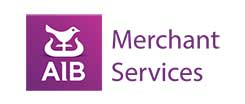- Accept card payments – lowest rates from 0.27%
- Keep your card processing fees to a minimum
- Direct access to the UK’s leading card processing banks
- We ensure your rates always remain competitive
No spam emails or calls
Choose from the payment methods then click Next
What's your turnover each month?
Enter the name of your company
Enter your company's postcode and contact number
Tell us what you need
Fill in our quick form and we’ll give you a call for a brief 5-minute chat to understand exactly what you're looking for.
Get tailored quotes
We’ll match you with up to three of the most competitive offers from our trusted providers that suit your business.
Pick with confidence
We’ll help you understand the options so you can choose the best fit — quickly, clearly, and without any pressure.






Efficient Payment System: A Comprehensive Guide to Modern Solutions
The payment system is the backbone of the UK economy, enabling millions of transactions daily between businesses, individuals, and public authorities. From cash and cheques to real-time payments and e-money, the evolution of payment systems has transformed how money moves.
For banks, building societies, and payment service providers, ensuring an efficient, secure, and stable system is crucial. This guide explores modern payments systems, their operation, benefits, risks, and future potential changes.
Understanding Payment Systems
A payment system refers to the infrastructure that facilitates the transfer of value between parties. In the UK, these systems are categorised into:
- Retail Payment Systems – Used for everyday transactions, including direct debit, card payments, and mobile banking.
- Financial Market Infrastructures (FMIs) – High-value systems used by banks and financial institutions, such as Real-Time Gross Settlement (RTGS).
The Bank of England oversees systemically important payment systems to ensure financial stability.
Key Players in Payment Systems
1. Central Banks
The Bank of England plays a pivotal role in monitoring and oversight of payments systems, ensuring liquidity and stability.
2. Payment Service Providers (PSPs)
These include banks, building societies, and fintech companies offering payment services such as telephone banking, direct debit, and e-money solutions.
3. Direct Participants
Institutions with direct access to settlement accounts in financial market infrastructures, enabling large-scale clearing and settlement services.
How Payment Systems Work
Clearing vs. Settlement
- Clearing: The process of transmitting and reconciling payment instructions.
- Settlement: The final transfer of funds between banks via a settlement account.
Real-Time Gross Settlement (RTGS)
The UK’s RTGS system, operated by the Bank of England, processes high-value transactions in real time, reducing risks and improving efficiency.
Faster Payments Service (FPS)
Enables real-time payments for businesses and individuals, processing millions of low-value transactions daily.
Benefits of Modern Payment Systems
1. Speed & Efficiency
- Real-time payments reduce delays in paying salaries or supplier invoices.
- Direct debit automates recurring transactions, improving cash flow.
2. Enhanced Security & Stability
- Financial market infrastructures are reviewed annually to ensure effectiveness.
- Central banks enforce criteria to mitigate risks like fraud and systemic failures.
3. Increased Competition & Innovation
- New payment service providers drive innovation, offering better services at lower cost.
- E-money and digital wallets provide alternatives to traditional banks.
4. Financial Inclusion
- Accessing digital payments systems supports charities, small businesses, and individuals with limited access to banks.
Challenges & Risks in Payment Systems
1. Cybersecurity Threats
As payments systems become digital, the risk of cyberattacks increases. Monitoring and implementation of robust security measures are essential.
2. Liquidity Risks
In financial market infrastructures, delays in settlement can cause liquidity shortages. The Bank of England ensures liquidity provision to mitigate this.
3. Regulatory Compliance
Public authorities impose strict oversight to ensure financial stability. Payment service providers must adhere to evolving regulations.
4. Operational Risks
System failures or technical glitches can disrupt payments. Organisations must have contingency plans.
The Future of Payment Systems
1. Digital Currencies & E-Money
The UK government is exploring Central Bank Digital Currencies (CBDCs) to modernise payments. E-money adoption is also rising.
2. Open Banking & API Integration
Open banking allows third-party providers to develop new services, improving access and competition.
3. Cross-Border Payment Innovations
Improving efficiency in international transactions will benefit businesses operating across countries.
4. Sustainability in Payments
Reducing reliance on cash and paper-based systems supports environmental objectives.
An efficient payment system is vital for financial stability, business growth, and economic progress. The UK’s payments systems, supported by central banks, payment service providers, and financial market infrastructures, continue to evolve with innovation and technology.
By addressing risks, improving access, and embracing potential changes, the future of payments promises greater speed, security, and convenience for all participants.
For businesses, individuals, and public authorities, staying informed about payment systems ensures better decision-making and financial management.
Would you like to explore how modern payment solutions can benefit your business? Contact us today for expert advice on accessing the most efficient payment systems in the UK.